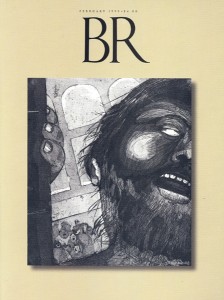The task of the biblical text critic is to try to make sense of biblical verses. The text critic faces many kinds of problems. I would like to offer as illustrations two cases where I would recommend emending the text—actually changing the biblical text as it has come down to us to a version I consider more original. In short, I believe there is a better text than the one we know.
One case I will discuss comes from the Hebrew Bible, the other from the New Testament. Readers may disagree with me, but even so, I hope they will find the highlighted problems intriguing.
The first example comes from Ecclesiastes, that odd book of cynicism and epicureanism. It is a rather simple example. Chapter 10:7 reads as follows:
I have seen slaves on horses and princes walking like slaves on the ground.
The question is whether to emend the text by inserting the word “riding” (in Hebrew, rokebim) in the first line, so that the text would read thusly:
I have seen slaves riding on horses and princes walking like slaves on the ground.
There is no great theological doctrine at stake here, not even a difference in meaning, only elegance of expression—and a desire to arrive at a more original text, what we might call the better text.
Already a library member? Log in here.
Institution user? Log in with your IP address.

